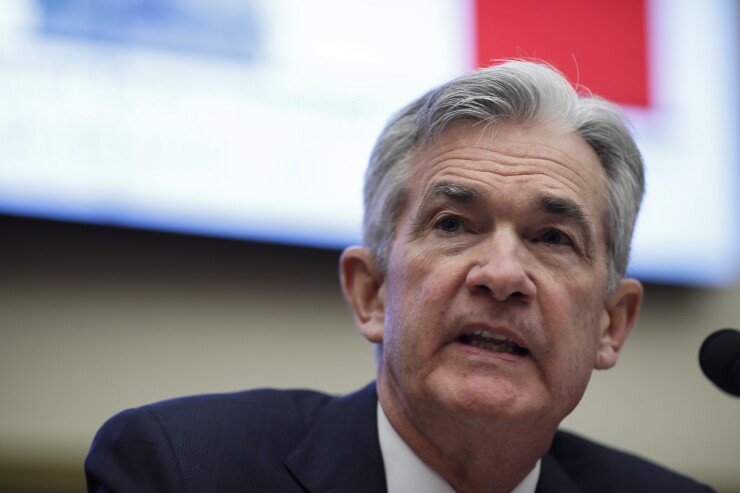Climate activists are starting to map out a coordinated campaign to oppose the potential renomination of Federal Reserve Chair Jerome Powell, because they view his record on fighting climate change through the banking system as scant and not aggressive enough.
The campaign will kick off Aug. 26 at the start of the Jackson Hole Economic Symposium, a gathering of Federal Reserve and economic officials.
Through demonstrations on the road from the airport and at the entrance to the lodge where the conference is held, the activists want to nudge President Biden to appoint someone new to lead the Federal Reserve. They want Biden to pick a chairman who views climate policy as significant as monetary policy and maximum employment.

Seven environmental groups, including the Sierra Club,
The protests, which organizers expect to draw 100 to 150 people, are being organized by several grassroots groups including the Sunrise Movement, Protect Our Winters and 350.org. Typically, about 120 financial, economic and Federal Reserve leaders attend the conference.
Climate risk
“Our view is that climate change and climate risk is the single largest threat to the financial system. Despite that, Powell is way, way behind on climate. The first time he seriously talked about climate risk was once it became clear Biden would become president,” said Yevgeny Shrago, policy counsel for Public Citizen’s Climate Program, which studies the intersection of climate change and financial regulation.
A Fed spokeswoman declined to comment. Powell was nominated to the chairmanship by former President Donald Trump in 2018.
The Fed under Powell has increasingly turned its focus to financial risks presented by climate change in recent years, attracting criticism from Republican lawmakers. It joined the Network for Greening the Financial System in December, a global coalition of central banks engaged in the study of climate risk that was launched in 2017.
A handful of climate leaders say they would prefer Biden instead appoint current Fed governor Lael Brainard, former deputy secretary to the Treasury Sarah Bloom Raskin or economics professor Lisa Cook to lead the central bank.
Brainard has the support of some administration officials and is viewed as the most likely alternative to Powell, though Raskin and Cook’s names also keep emerging either for the chair slot or one of the two open vice chair positions.
The activists want a Fed leader who will use the board’s regulatory authority to ensure climate risk is factored into the Fed’s assessment of the health of U.S. banks.
Climate recommendations
“I do think climate will be an issue in his potential renomination,” said Jamal Raad, co-founder and executive director of Evergreen Action, a climate change group comprised of former staffers to Governor Jay Inslee. Evergreen is planning to release recommendations on the best ways Powell or another Fed pick can show he or she is climate-friendly and move to tackle climate change.
The Biden administration could name its pick as early as September and is expected to announce its nomination for Fed chair alongside other nominations for two upcoming vice chair slots.
Several top Biden aides
Choosing a Fed chair is one of the most consequential economic picks for any president, outside of the Treasury secretary, given the chair’s influence over the economy and interest rates and the signal the leader sends to financial markets and Wall Street.





